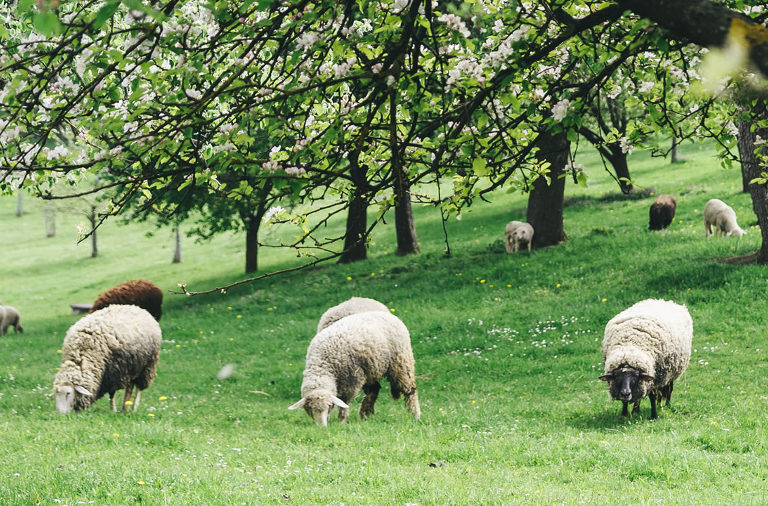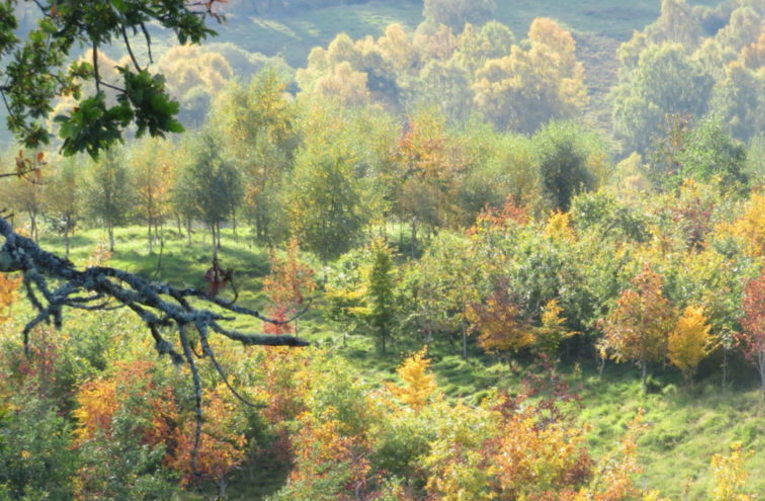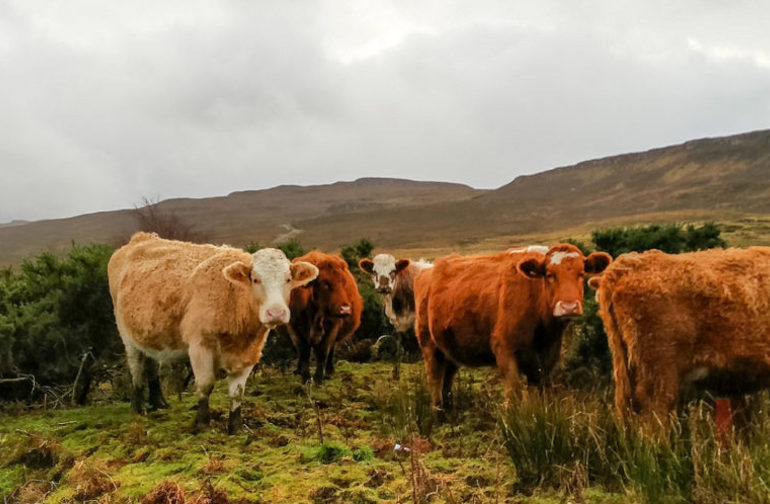Robert comes from a hill farming family in Highland Perthshire, and has always been interested in the relationships between land-use and the environment. He studied Geography and Scottish History at St Andrews University, before returning to work on the farm. After stints volunteering with the James Hutton Institute and a research project on natural flood management, he began a PhD in palaeoecology at St Andrews, but he left this after realising that he wanted to carry out research in a more applied setting. Robert started working with the SFT in late 2018, as an assistant to Richard Young at Kites Nest Farm. He mainly works as a researcher, looking at the hidden costs of food production, the links between diet and non-communicable diseases, and the role of livestock in UK agriculture.
Fincastle: Sustainable hill farming is the future
Using Forest Research figures, we reckon that planting around 15% of our farm with wood pasture (around a third more than at present) could offset all of our emissions – something which we can definitely achieve without any real loss of agricultural production.
October 27, 2021
Agroforestry: An ancient practice with a promising future?
Traditionally defined as the growing of commercially productive trees and agricultural crops on the same piece of land, agroforestry is, despite its new-found fame, a very old practice – though one which has sadly been almost entirely lost from our landscape.
May 10, 2021
Livestock and food security: A contested relationship
How are we going to feed an increasingly hungry planet, without crippling the life support systems on which we depend? It’s an existentially important question, the solution to which will require action on a myriad of fronts.
October 14, 2020




